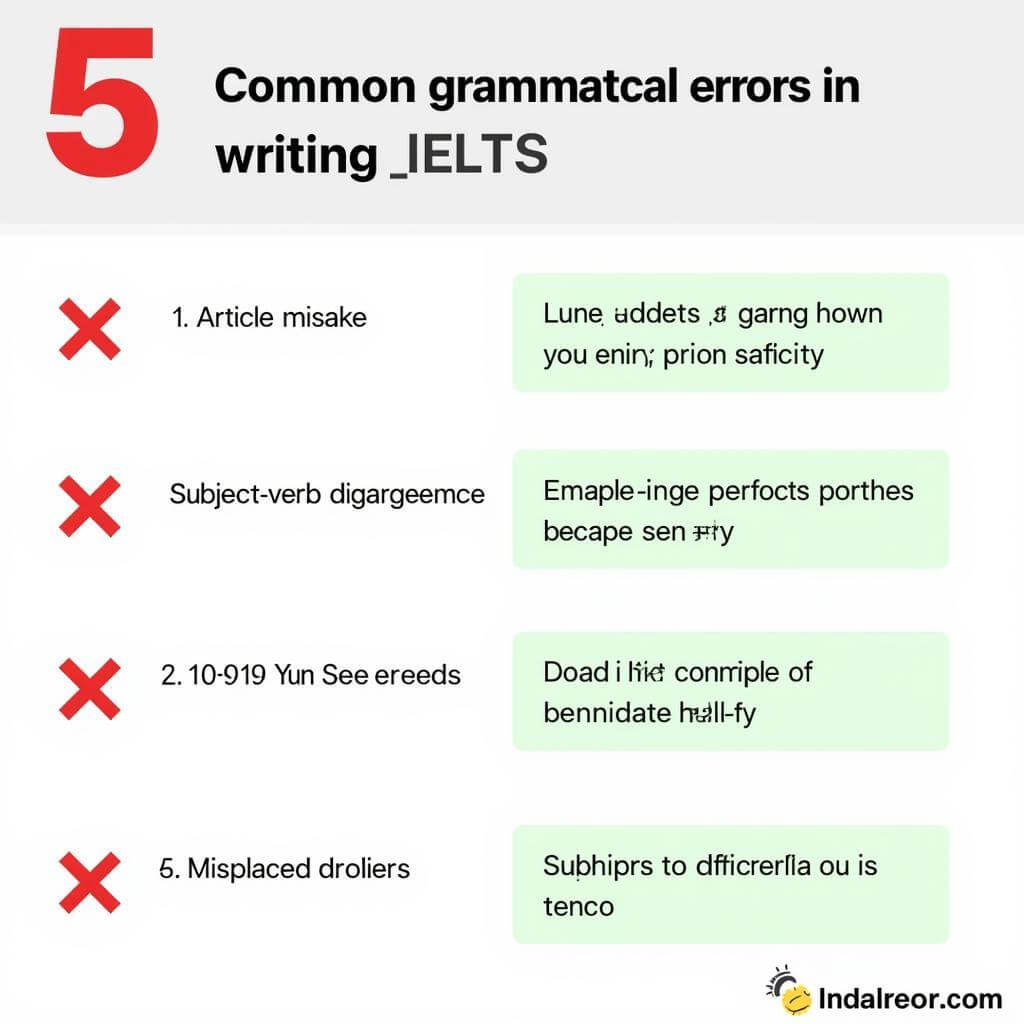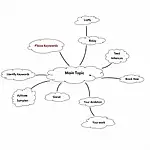Improving grammar in IELTS writing is crucial for achieving a high band score. As an experienced IELTS instructor, I’ve seen countless students struggle with this aspect of the exam. In this comprehensive guide, we’ll explore effective strategies to enhance your grammatical accuracy and boost your overall performance in the IELTS writing test.
Understanding the Importance of Grammar in IELTS Writing
Grammar plays a pivotal role in both Task 1 and Task 2 of the IELTS writing exam. Examiners assess your grammatical range and accuracy as one of the four key criteria. A strong command of grammar not only improves your score but also enhances the clarity and coherence of your writing.
The Impact of Grammar on Your Band Score
Grammatical proficiency can significantly influence your overall band score. Even minor errors can lead to a lower grade, especially if they impede understanding. Let’s break down how grammar affects your score:
- Band 7: Frequent error-free sentences with good control of grammar
- Band 6: Mix of complex and simple structures with some errors
- Band 5: Limited range of structures with frequent grammatical mistakes
To aim for a higher band score, focus on improving your grammatical accuracy and range.
Key Strategies for Improving Grammar in IELTS Writing
1. Master the Basics
Before tackling complex structures, ensure you have a solid foundation in basic grammar. This includes:
- Subject-verb agreement
- Tense consistency
- Proper use of articles (a, an, the)
- Correct pronoun usage
Dr. Emily Chen, a renowned IELTS expert, emphasizes, “Mastering fundamental grammar rules is the cornerstone of IELTS writing success. It’s like building a house – you need a strong foundation before adding intricate details.”
2. Expand Your Range of Grammatical Structures
To impress the examiner and boost your score, incorporate a variety of grammatical structures in your writing. Focus on:
- Conditional sentences (If clauses)
- Relative clauses
- Passive voice
- Participle clauses
- Inversion for emphasis
3. Practice Sentence Combining
Improve your ability to create complex sentences by practicing sentence combining. This technique helps you:
- Avoid choppy, simple sentences
- Express ideas more concisely
- Demonstrate advanced grammar skills
For example, combine these simple sentences:
- The city has high pollution levels.
- The government is implementing new policies.
- These policies aim to reduce emissions.
Into a complex sentence:
“Due to the city’s high pollution levels, the government is implementing new policies aimed at reducing emissions.”
For more advanced techniques on sentence structure, check out our guide on avoiding overuse of simple sentences.
4. Use Appropriate Tenses
Proper tense usage is crucial in IELTS writing. Pay attention to:
- Consistency in tense throughout your essay
- Using the correct tense for different situations (e.g., present perfect for experiences, past simple for completed actions)
- Employing future tenses appropriately in Task 2 essays discussing predictions or solutions
5. Proofread and Edit Systematically
Develop a systematic approach to proofreading your work:
- Read your essay aloud to catch awkward phrasing
- Check each sentence for subject-verb agreement
- Verify proper use of articles and prepositions
- Ensure consistent tense usage throughout
- Look for opportunities to vary sentence structures
Remember, effective proofreading can significantly improve your grammatical accuracy.
Common Grammatical Pitfalls in IELTS Writing
Be aware of these frequent grammar mistakes made by IELTS candidates:
- Misuse of articles (a, an, the)
- Incorrect subject-verb agreement
- Run-on sentences or comma splices
- Misplaced or dangling modifiers
- Inconsistent use of tenses
IELTS examiner Sarah Thompson notes, “The most common grammatical errors I see are often simple mistakes that can be easily corrected with careful proofreading. Attention to detail can make a significant difference in your score.”
 Common grammatical errors in IELTS writing
Common grammatical errors in IELTS writing
Advanced Grammar Techniques for Higher Band Scores
To push your writing to Band 7 and above, incorporate these advanced techniques:
-
Use cleft sentences for emphasis: “It is the government that should take responsibility for environmental protection.”
-
Employ inversion for conditional sentences: “Had the government acted sooner, the environmental crisis could have been averted.”
-
Utilize participle clauses: “Having considered all options, the committee decided to implement stricter regulations.”
-
Incorporate adverbial clauses: “While some argue for immediate action, others believe a gradual approach is more feasible.”
-
Use mixed conditionals: “If the government had invested in renewable energy earlier, we would be facing fewer environmental challenges now.”
For more strategies on handling complex topics, visit our guide on strategies for complex task 2 topics.
Integrating Grammar Practice into Your IELTS Preparation
To effectively improve your grammar for IELTS writing:
- Analyze model essays to identify grammatical structures
- Keep a grammar journal to note new structures and common errors
- Use grammar checkers, but don’t rely on them exclusively
- Practice rewriting sentences to incorporate more complex structures
- Seek feedback from teachers or language exchange partners
Remember, consistent practice is key to improving your grammatical accuracy and range.
Conclusion
Improving grammar in IELTS writing is a continuous process that requires dedication and practice. By focusing on mastering basic rules, expanding your range of structures, and incorporating advanced techniques, you can significantly enhance your writing performance. Remember to proofread carefully and learn from your mistakes. With these strategies, you’ll be well on your way to achieving a higher band score in the IELTS writing test.
For more tips on improving your overall writing skills, check out our guide on how to write task 1 with good structure.
FAQ
How much does grammar affect my IELTS writing score?
Grammar accounts for 25% of your writing score. It’s assessed under “Grammatical Range and Accuracy” and can significantly impact your overall band.
Can I use simple grammar structures and still get a high score?
While it’s possible to use simpler structures correctly, incorporating a range of complex structures is necessary for higher band scores (7 and above).
How can I improve my grammar quickly before the IELTS test?
Focus on identifying and correcting your most common errors, practice using a variety of sentence structures, and get feedback on your writing from a teacher or tutor.
Should I memorize grammar rules for the IELTS writing test?
Rather than memorizing rules, focus on understanding and applying them in context. Practice using different structures in your writing regularly.
How can I avoid making careless grammar mistakes in the IELTS writing test?
Develop a systematic proofreading strategy, manage your time effectively to allow for review, and practice writing under timed conditions to improve accuracy under pressure.


